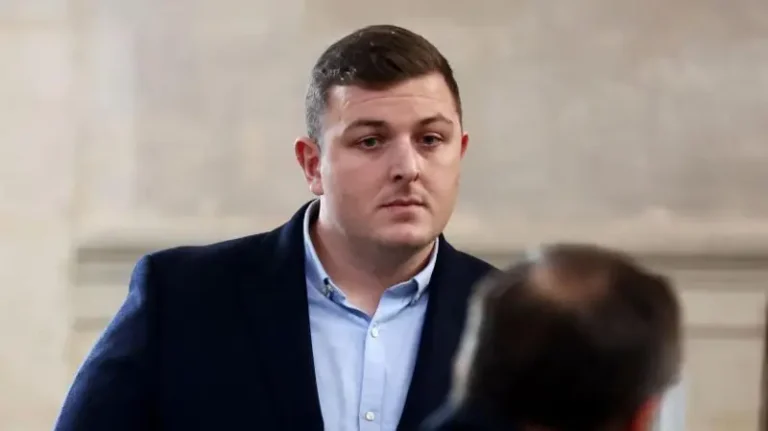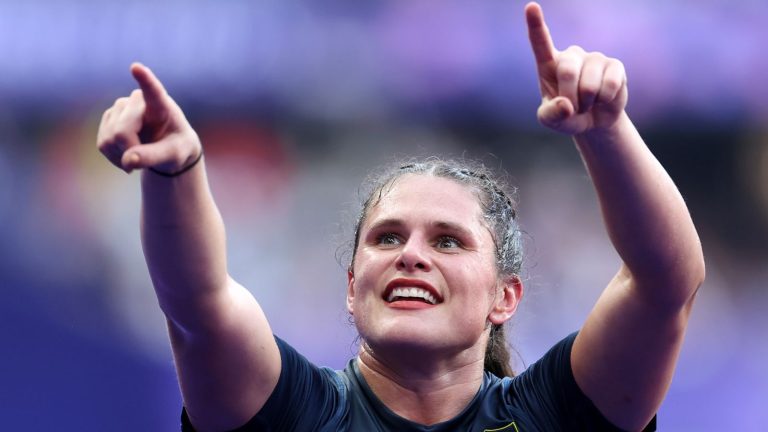WORLD CUP WINNER TURNED TO NEW SPORT AFTER BRAIN INJURY, DIVORCE AND BANKRUPTCY SENT HIM TO ROCK BOTTOM
Former England rugby star Phil Vickery has shared that bodybuilding has played a crucial role in helping him cope with feelings of ‘failure’ that he struggled with.
The 2003 World Cup champion has faced personal challenges, including divorce, bankruptcy, and a diagnosis of probable chronic traumatic encephalopathy, with recent scans confirming brain injury. Vickery was forced to retire from rugby in 2010 due to multiple neck injuries.
Now, 14 years later, Vickery competes in bodybuilding competitions, and he says the similarities with rugby have brought him a sense of purpose that he had been missing during his difficult times.
Everything else in the world becomes irrelevant when you walk into that gym,” he told the *Daily Mail*. “I needed a challenge, something out of my comfort zone, so I decided to try a bodybuilding show. I ended up in third place. My genetics aren’t ideal for bodybuilding, but I loved the journey—the pain, the effort, and the struggle to get on stage.”
He continued, “When you lock eyes with someone who has gone through that, you think, ‘Respect.’ It’s similar to when I see another rugby player, ‘You’re hurt, well done, mate.’”
Vickery also reflected on the emotional toll of his personal life, saying, “After the divorce, someone told me, ‘Don’t let alcohol become your friend,’ and that really shook me. I could easily see how that could become a problem for me, so I avoided it. Bodybuilding gave me a focus and discipline, especially during the final prep, where you stay very clean.”
Describing the lowest point in his life, Vickery said, “With Covid, the restaurant business, bankruptcy, and divorce… it felt like rock bottom. It’s about your integrity. You’re Phil Vickery—honest, passionate, and proud—but you’ve failed. You can keep telling yourself you’ll make it work, but eventually, it catches up.”
He admitted struggling with the gym after his rugby career, explaining, “I had always trained with a purpose. I enjoy cycling, but after three neck surgeries, I can’t ride for more than an hour. Before I knew it, I gained weight, and suddenly I was 24 stone. I was hurting all over and thought, ‘Come on, Phil.’”
Since starting bodybuilding, Vickery has lost six stone and now has defined abs. “I’m 18 stone now,” he said. “It took time for me to realize that the gym is about my well-being—physical and mental health.”
At 48, Vickery also revealed a recent diagnosis of brain injury, which sometimes affects his memory. “I knew something was wrong before the scan,” he told The Times“I just didn’t want to face it.”
Vickery joined the class-action concussion lawsuit against World Rugby, the RFU, and the Welsh Rugby Union to “secure my future and those who will look after me.” He added, “It’s not unreasonable to ask for help. I didn’t sign up for brain damage. It’s not about attacking the game, but the reality is that I might need help in the future, and I want to be prepared for that.”
Vickery’s struggles are not unique among the 2003 World Cup squad. His former teammate Ben Cohen recently shared that he had to sell his World Cup medal to survive financially during the pandemic. Vickery was visibly emotional as Cohen revealed this, something Vickery had not known before the interview.
Cohen, along with other members of the 2003 squad, has launched a charity called Champions 2003, aimed at helping athletes transition to life after sport. Cohen explained, “The goal is to highlight the struggles we face, leave a legacy, and offer support to athletes as they adjust to life beyond competitive sport.”




